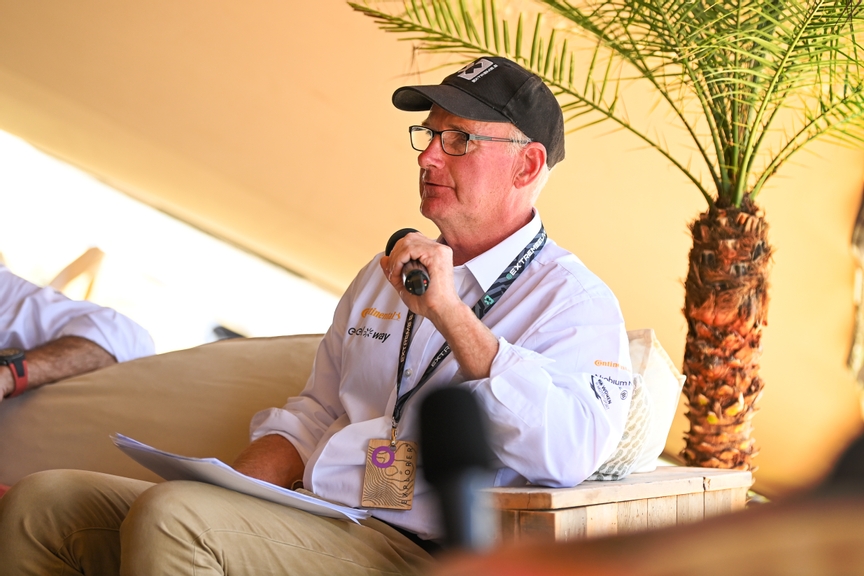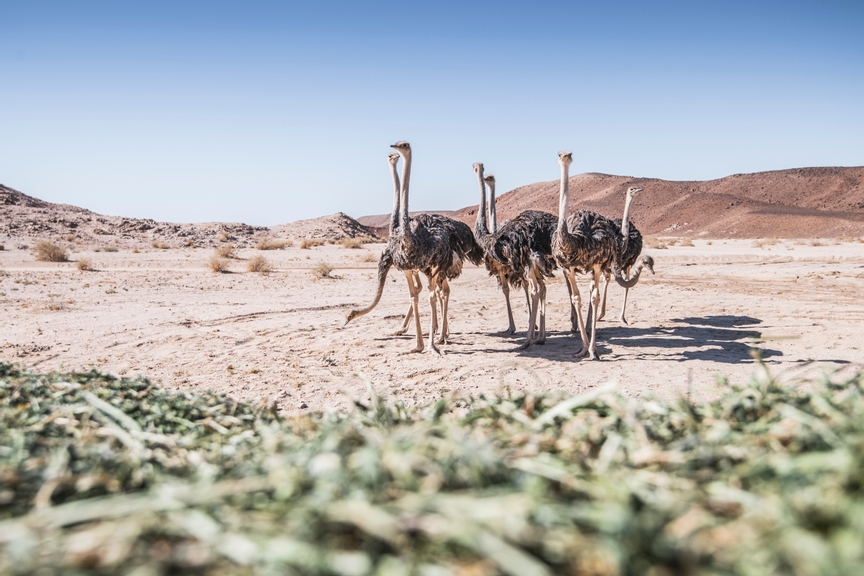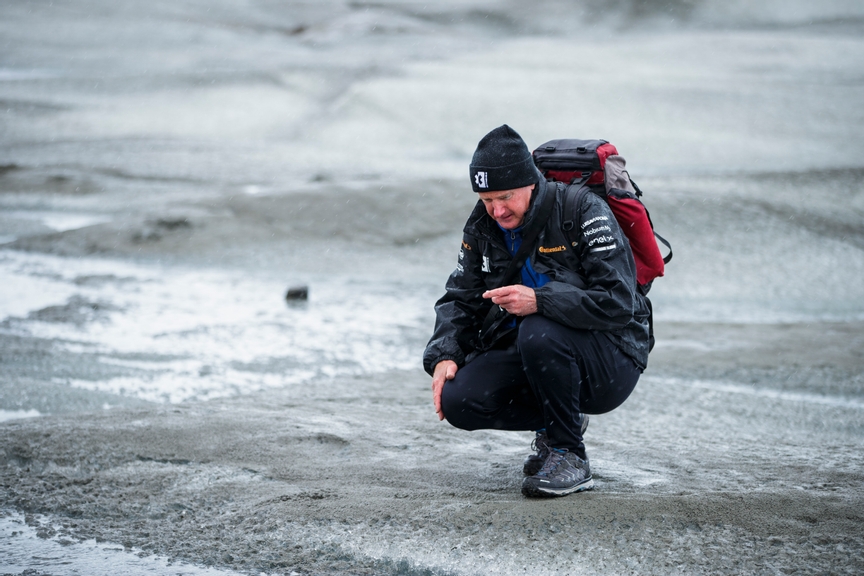Up close with our Desert Scientist Professor Richard Washington
Raised in a coastal town in South Africa, Richard’s passion for weather and climate began at an early age. He says, “I was one of the lucky ones who knew from school days that I wanted to find out about weather and climate. I didn’t have any expectations that this would involve a career at university or that one day I would be a professor though, that all seemed way out of reach. I feel very lucky that it worked out so well."
Cementing this fascination was largely thanks to his adventures as a young man in the deserts of Southern Africa. Richard explains, “One of the simple gamechangers in my career was the decision to buy a very old and half broken 1969 Land Rover and heading out into the wilderness. I soon learned that it was about discovery which in turn brought great joy to me. Finding my passion like this makes me, I’m pretty sure, one of the luckiest people in the world.”
Following on from this, Richard went on to collect a multitude of academic accolades including degrees from the University of Natal and Oxford as well as attaining a Fellowship of Keble College, University of Oxford where is also Professor of Climate Science. Richard has also lectured at the University of Stellenbosch and the University of Cape Town in South Africa. In addition, he co-chaired for four years on the World Climate Research Africa programme (CLIVAR-VACS) and has co-authored several reports for the IPCC (International Programme for Climate Change).

With his expertise in climate science, Professor Washington was a natural fit for pioneering off-road electric motorsport championship Extreme E, which focuses on raising awareness about climate change and other vital environmental issues. In 2020, Washington was approached to become a Scientific Advisor and Lead Desert Scientist for the then fledgling series.
In his role, Richard has been praised by a wide range of journalists for his ability to satisfactorily address a number of issues related to Extreme E. He has especially cited the series' potential to divert the attention of large worldwide audiences towards climate-related issues as a key reason for his involvement. In 2022, Washington was appointed as Chair of the Extreme E Science Committee.
“Extreme E is an exciting venture that seeks to combine sport with environmentalism. It aims to highlight the effects of climate change and promote sustainability, while also providing thrilling entertainment,” Professor Washington explains.
Commenting on his first two seasons working with the championship, Professor Washington said: “Season 1 in Extreme E focused hard on climate impacts – wildfires, melting ice caps, sea-level rise, desertification, biodiversity loss. It is necessary medicine to learn about these issues and their tight connection to climate change.

“Season 2, quite rightly, also saw an emphasis on what we can do about the climate problem. The last X Prix of Season 2 in Punta del Este had the theme Energy which was fittingly matched with Uruguay. The need to generate power differently is at the absolute heart of the climate problem.”
For Professor Washington, Extreme E provides a platform to not only talk about climate change but also to show that change is possible. “Solving the climate crisis requires lots of changes to the way we do things, and we know what many of those changes are. Invoking that change is difficult, though, especially on the scale that is urgently needed. Extreme E is showing us how even something like motorsport which has typically relied on fossil fuel-based technology can be different and can be environmentally friendly – while also being exciting and extreme!”
Extreme E’s commitment to environmentalism goes beyond just using electric vehicles. The championship also has a Legacy Programme that aims to leave a positive impact on the regions it visits. “The Legacy Programme is a critical part of Extreme E. We can’t just visit a region, hold a race and then leave. We need to make sure that we have a positive impact on the environment and the people in that region,” Professor Washington says.
The championship also works closely with local communities and organisations to implement sustainable projects such as reforestation, waste management, and renewable energy initiatives. These projects not only benefit the environment but also create job opportunities and promote economic growth in the region.

“My involvement in Extreme E has already been a wonderful experience from many perspectives, and one of those is the chance to talk to important people about climate change and environmental problems. I am continually struck by how receptive journalists and people at the top of their profession in motorsport are to the climate change story,” Professor Washington adds.
Extreme E is not just about racing, it is about creating awareness and inspiring change. The championship has been successful in attracting attention from global media and has become a platform for discussing important issues such as climate change and sustainability.
Professor Washington concludes, “For years and years as a climate scientist, we were spreading doom and gloom without solution to hand, and Extreme E for us has been an absolute breath of fresh air because it holds the solutions in its hands and it’s spreading the word like we as climate scientists, just can’t. It’s taken billions of years for nature to have created our world, and so taking care of the greatest gift that we as humans have ever had, is a responsibility that we simply cannot shirk."